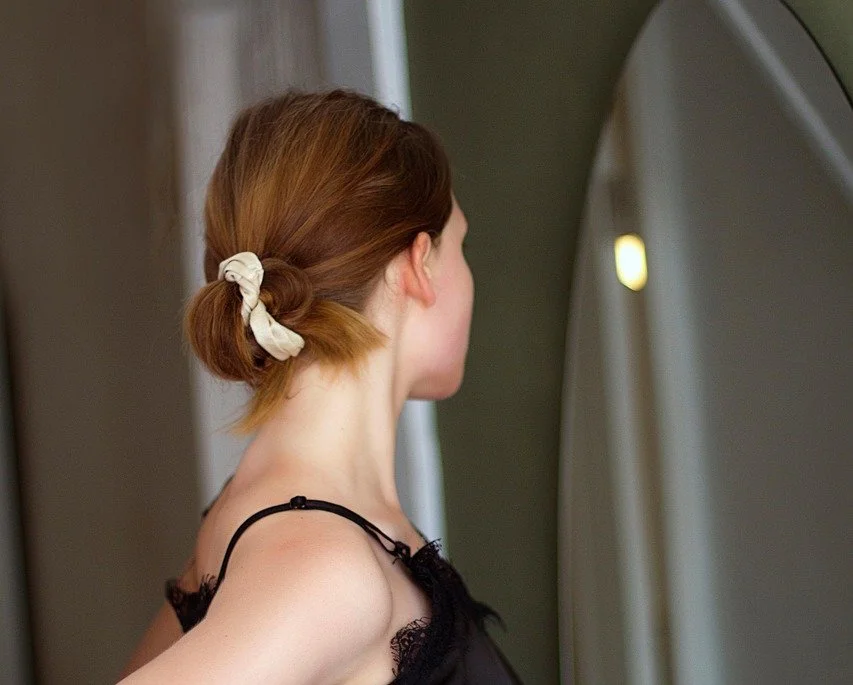Christine stood in front of the mirror, tugging at her shirt, turning slightly to the side, and frowning at her reflection. It was the third outfit she’d tried on that evening. She was getting ready for a dinner date with her new boyfriend, Andy, a man who had been kind, attentive, and consistently told her she was beautiful. But still, she couldn’t shake the feeling that maybe—just maybe—he didn’t really find her attractive. Maybe he was just being polite. Maybe once he saw her without makeup, or noticed the stretch marks she carefully hid, he’d lose interest. These thoughts swirled in her mind like a quiet storm, casting a shadow over what should have been a joyful moment. Insecurity, it seemed, had crept into her heart, whispering the lie that she wasn’t enough as she was.
Feeling unattractive is an experience that can sneak up on anyone—regardless of age, gender, or physical appearance. Whether it’s triggered by a glance in the mirror, a social media scroll, or an offhand comment from someone else, these moments of self-doubt can leave deep emotional imprints. Understanding why we sometimes feel this way, how it shapes our behavior, and what we can do to shift our perspective is the first step toward reclaiming a healthier, more compassionate self-image.
One reason people often feel unattractive is due to cultural and societal standards that narrowly define what beauty looks like. From a young age, we are bombarded with images in media that promote unrealistic ideals—perfect skin, slim bodies, specific facial features—causing many to internalize the belief that their natural appearance isn't good enough. Add to this personal experiences like bullying, rejection, or critical family environments, and it’s easy to see how insecurity takes root. Hormonal changes, illness, or weight fluctuations can also play a role, affecting not only how we look but how we feel in our own skin.
“These negative perceptions of our appearance don’t just stay in our heads—they shape the way we show up in the world”
These negative perceptions of our appearance don’t just stay in our heads—they shape the way we show up in the world. When we feel unattractive, we may avoid eye contact, skip social events, or silence our voices out of fear of being judged or dismissed. Our posture may shrink, our confidence may falter, and we may miss out on opportunities that require us to be seen and heard. Over time, this can reinforce a cycle of low self-worth that stretches far beyond the surface level of appearance, influencing our relationships, careers, and overall sense of well-being.
The good news is that these patterns can be disrupted. Changing how we see ourselves begins with changing how we speak to ourselves. Self-talk matters. Instead of focusing on what you believe is “wrong” with your appearance, practice identifying and affirming what is uniquely beautiful about you. Maybe it’s your expressive eyes, the warmth in your smile, or the strength in your body that has carried you through so much. This isn’t about denying insecurity—it’s about creating space for something more loving and balanced.
Another powerful shift comes from expanding our definition of beauty. Spend less time consuming content that makes you feel inferior, and more time surrounding yourself with diverse representations of real people. Follow creators, artists, and voices who celebrate authenticity over perfection. Remind yourself that beauty is subjective and ever-changing; what one person finds attractive, another may not. The most magnetic people are often those who are at peace with themselves, regardless of whether they fit conventional molds.
Additionally, reconnecting with your body through movement can help rebuild a positive relationship with your physical self. Whether it’s dancing, walking, stretching, or strength training, moving your body in a way that feels good—not punishing—can help you feel more embodied, empowered, and alive. Nourishing your body with healthy food, rest, and care is another way to send the message to yourself that you are worthy of love and attention, no matter how you look.
If negative feelings persist or are rooted in deeper emotional wounds, therapy or counseling can offer support and tools for healing. Sometimes the way we feel about our appearance is linked to past trauma, rejection, or unmet emotional needs. Exploring these connections with a professional can be incredibly liberating.
Ultimately, the goal isn't to feel beautiful all the time—it’s to recognize that your worth isn’t tied to your appearance. You are so much more than what’s visible in the mirror. Who you are—your kindness, your resilience, your humor, your courage—is what people remember. The most powerful transformation begins not with changing how you look, but how you see yourself. When you begin to view yourself with the same compassion you would offer a friend, everything changes: your confidence rises, your energy shifts, and you begin to walk through the world not needing to be beautiful to everyone—just whole, true, and enough as you are

